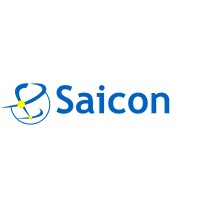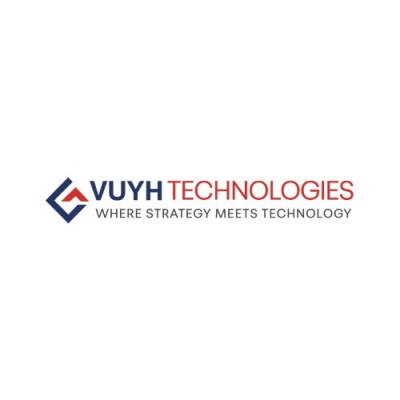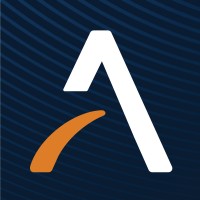

Physical AI Engineer - W2
⭐ - Featured Role | Apply direct with Data Freelance Hub
This role is for a Physical AI Engineer in Alpharetta, GA, for 1 year at a competitive pay rate. Requires a Bachelor's degree and 3-6 years in Robotics, proficiency in Python, C++, or Java, and knowledge of the NVIDIA ecosystem.
🌎 - Country
United States
💱 - Currency
$ USD
-
💰 - Day rate
150
-
🗓️ - Date discovered
September 4, 2025
🕒 - Project duration
More than 6 months
-
🏝️ - Location type
On-site
-
📄 - Contract type
W2 Contractor
-
🔒 - Security clearance
Unknown
-
📍 - Location detailed
Alpharetta, GA
-
🧠 - Skills detailed
#NumPy #Jira #AI (Artificial Intelligence) #Python #Azure DevOps #Data Manipulation #Automation #Computer Science #GIT #ML (Machine Learning) #Scala #PyTorch #DevOps #Agile #Pandas #Azure #Reinforcement Learning #Programming #C++ #TensorFlow #Data Integration #Deep Learning #Java
Role description
Role : Physical AI Engineer
Location : Alpharetta, GA
Duration: 1 year
• 3-6 years of full-time working experience in Robotics
• Strong proficiency in programming languages such as Python, C++, or Java
• Extensive knowledge of the NVIDIA ecosystem
To Qualify for the Role, You Must Have
• A Bachelor’s degree in a relevant field (e.g., Robotics, Computer Science, Mechanical Engineering, Electrical Engineering).
• 3-6 years of full-time working experience in Robotics, Digital Twin, and Computer Vision/Deep Learning/Reinforcement Learning.
• Proven experience in developing and implementing scalable AI systems that integrate software and hardware components effectively.
• Strong proficiency in programming languages such as Python, C++, or Java, with hands-on experience in robotics frameworks (e.g., ROS) and simulation environments (e.g., Isaac Sim).
• Extensive knowledge of the NVIDIA ecosystem, including experience with their offerings and implementation strategies for robotics and AI applications.
• Solid understanding of robotic systems, including kinematics, dynamics, control algorithms, and sensor integration (e.g., LIDAR, cameras).
• Familiarity with machine learning techniques and algorithms, particularly in the context of robotics, automation, and decision-making processes.
• Experience designing, building, and maintaining robotics systems and digital twin models, with a focus on real-time data integration and simulation.
• Proficiency in using data manipulation and analysis tools (e.g., Pandas, NumPy) to derive insights from sensor data and simulations, along with experience in popular ML frameworks such as TensorFlow or PyTorch.
• Experience with DevOps tools (e.g., GIT, Azure DevOps) and Agile methodologies (e.g., Jira) to develop and deploy analytical solutions with multiple features, pipelines, and releases.
• Excellent communication skills to clearly convey findings, recommendations, and opportunities for improvement to clients and team members.
• Willingness to travel as needed to engage with clients and stakeholders.
Role : Physical AI Engineer
Location : Alpharetta, GA
Duration: 1 year
• 3-6 years of full-time working experience in Robotics
• Strong proficiency in programming languages such as Python, C++, or Java
• Extensive knowledge of the NVIDIA ecosystem
To Qualify for the Role, You Must Have
• A Bachelor’s degree in a relevant field (e.g., Robotics, Computer Science, Mechanical Engineering, Electrical Engineering).
• 3-6 years of full-time working experience in Robotics, Digital Twin, and Computer Vision/Deep Learning/Reinforcement Learning.
• Proven experience in developing and implementing scalable AI systems that integrate software and hardware components effectively.
• Strong proficiency in programming languages such as Python, C++, or Java, with hands-on experience in robotics frameworks (e.g., ROS) and simulation environments (e.g., Isaac Sim).
• Extensive knowledge of the NVIDIA ecosystem, including experience with their offerings and implementation strategies for robotics and AI applications.
• Solid understanding of robotic systems, including kinematics, dynamics, control algorithms, and sensor integration (e.g., LIDAR, cameras).
• Familiarity with machine learning techniques and algorithms, particularly in the context of robotics, automation, and decision-making processes.
• Experience designing, building, and maintaining robotics systems and digital twin models, with a focus on real-time data integration and simulation.
• Proficiency in using data manipulation and analysis tools (e.g., Pandas, NumPy) to derive insights from sensor data and simulations, along with experience in popular ML frameworks such as TensorFlow or PyTorch.
• Experience with DevOps tools (e.g., GIT, Azure DevOps) and Agile methodologies (e.g., Jira) to develop and deploy analytical solutions with multiple features, pipelines, and releases.
• Excellent communication skills to clearly convey findings, recommendations, and opportunities for improvement to clients and team members.
• Willingness to travel as needed to engage with clients and stakeholders.






